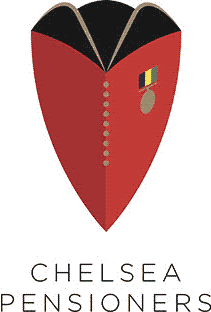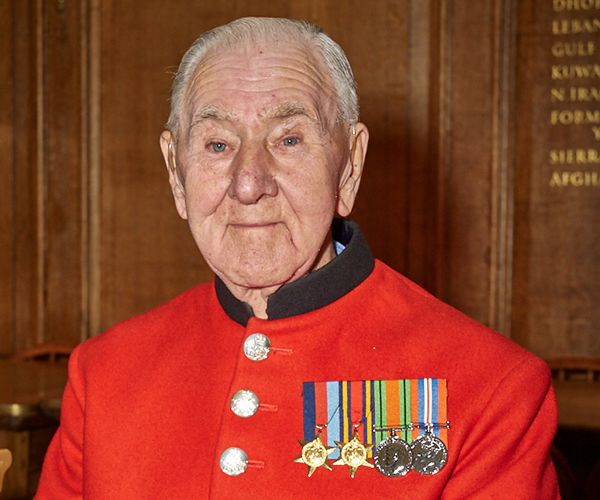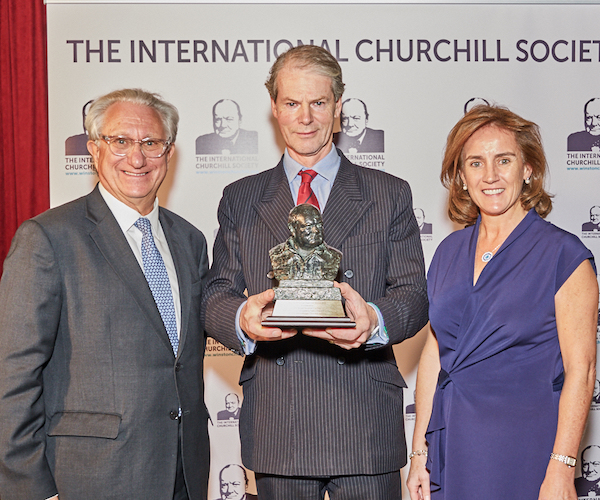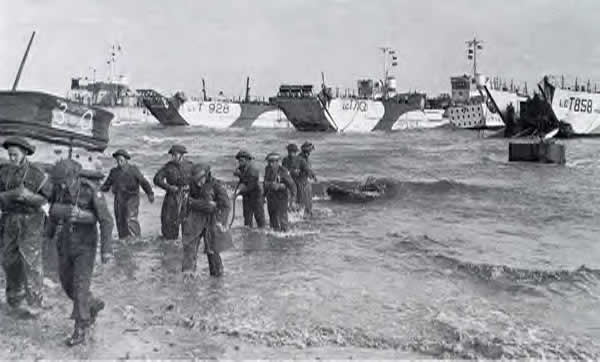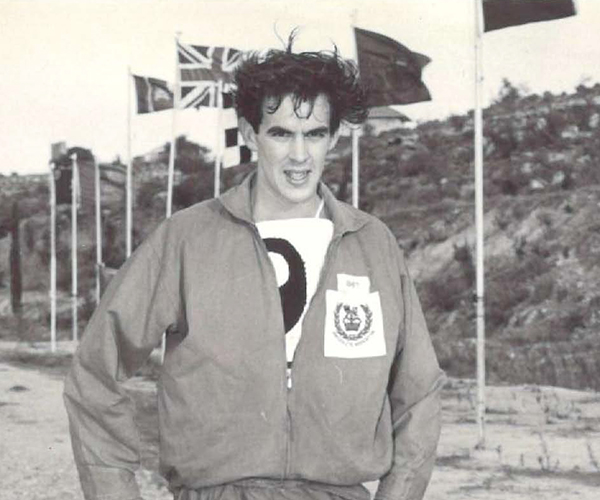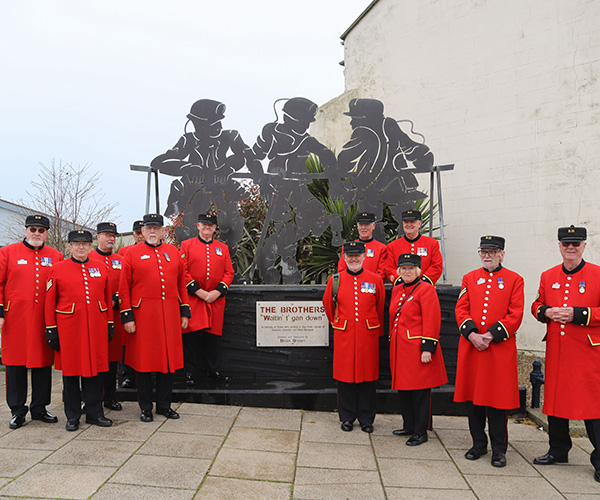VJ Day - letters from a POW Pensioner
14th August 2020
2020 marks the 75th anniversary of Victory over Japan, or VJ, Day. On 15 August 1945, Imperial Japan surrendered, effectively bringing the conflict to an end. To commemorate this significant year in the legacy of the Second World War, we have explored our collections and the stories behind some of the artefacts that relate to war with Japan.
Chelsea Pensioner Albert Lee (1910-1988) was a prisoner of war (POW) in Japan from 1943 until his camp was liberated in 1945. Serving as a Lance Bombardier in the Royal Artillery, Albert was separated from his family for the entirety of the Second World War. He had married his wife, Doris, in 1932 and they had two children, Brian and Margaret. Here we can see his letters to them during his time of imprisonment.
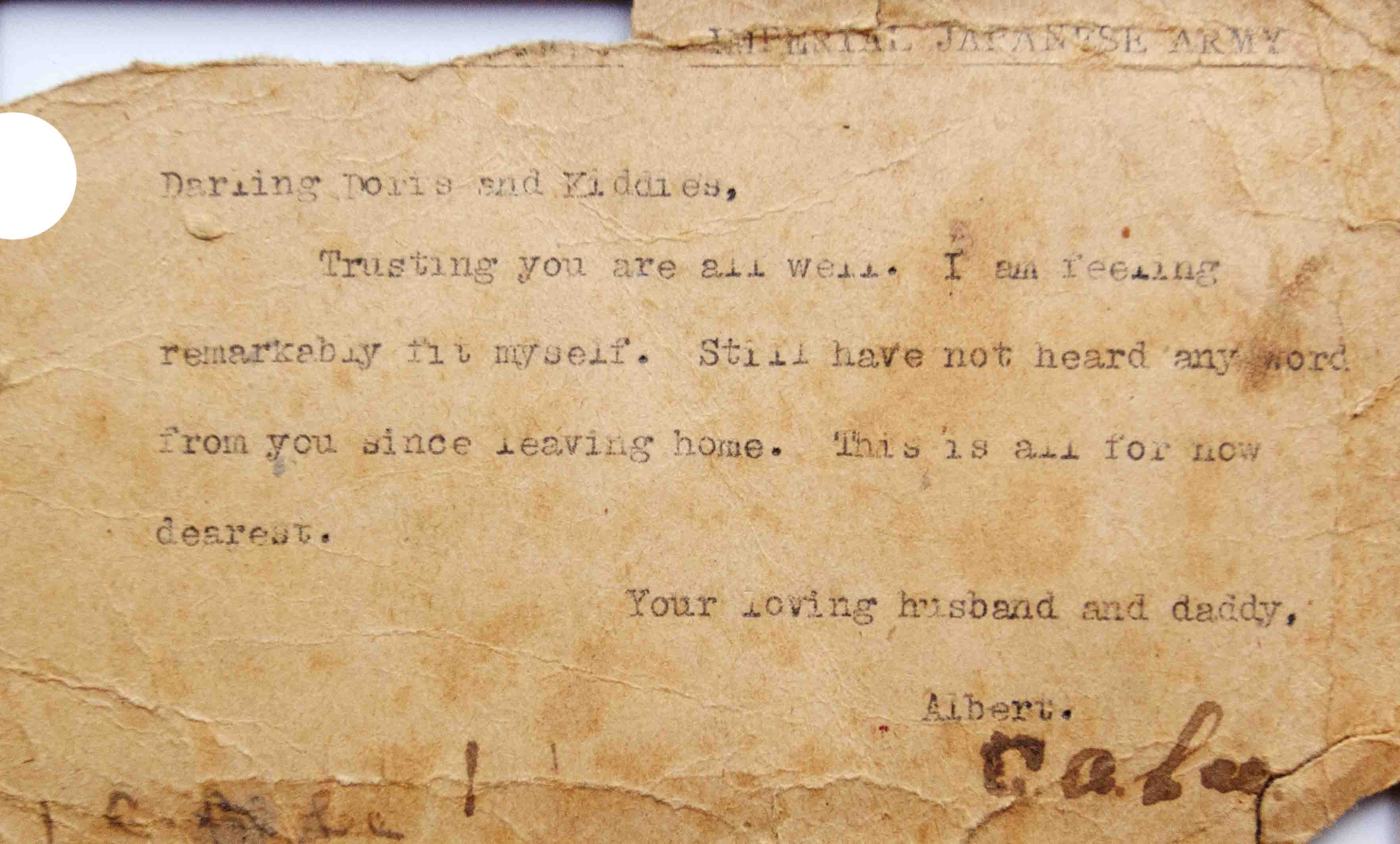
Darling Doris and Kiddies,
Trusting you are all well. I am feeling remarkably fit myself. Still have not heard any word from you since leaving home. This is all for now dearest.
Your loving husband and daddy,
Albert
Albert saw action across the world throughout his time in the Royal Artillery. He was evacuated from Dunkirk in 1940 before his regiment moved to South Africa in 1941, then Singapore. He was once again evacuated, this time from Singapore to Sumatra. When Sumatra was invaded by the Imperial Japanese Army in 1942, the regiment moved on to Java where Albert was captured and became a POW.
The camp in which Albert was held was Fukuoka Prisoner-of-War Camp sub camp 1, which held approximately 1,000 men, comprising British, American, Australian and Dutch prisoners. Conditions were brutal, the men were used for hard labour and were severely malnourished. Unsurprisingly, due to these conditions Albert contracted Beri-Beri and Typhoid during his imprisonment.
Communications between POWs and their families were sporadic at best. Although contact was supposed to be facilitated through the International Red Cross, in reality this was limited and most weren’t able to contact home more than once or twice throughout their incarceration.

Dearest Doris, Margy and Brian,
Hoping you are all fit and well at home. Am keeping fine myself, dear. Still have not received word from you, Sweetheart. Am waiting patiently for a letter. This has to be all for the present.
Your loving husband and Daddy,
Albert
During his time at Fukuoka, Albert originally worked as a labourer but was later moved to Red Cross Parcel Distribution. Since this gave him improved access to postal communications, it is possible that he would have been able to send more letters home to Leicester beyond the three he gifted to the Royal Hospital.
As the letters are not dated, it is unknown how long Albert waited for correspondence from his family; however, this last communication shows that word from home had finally reached him.
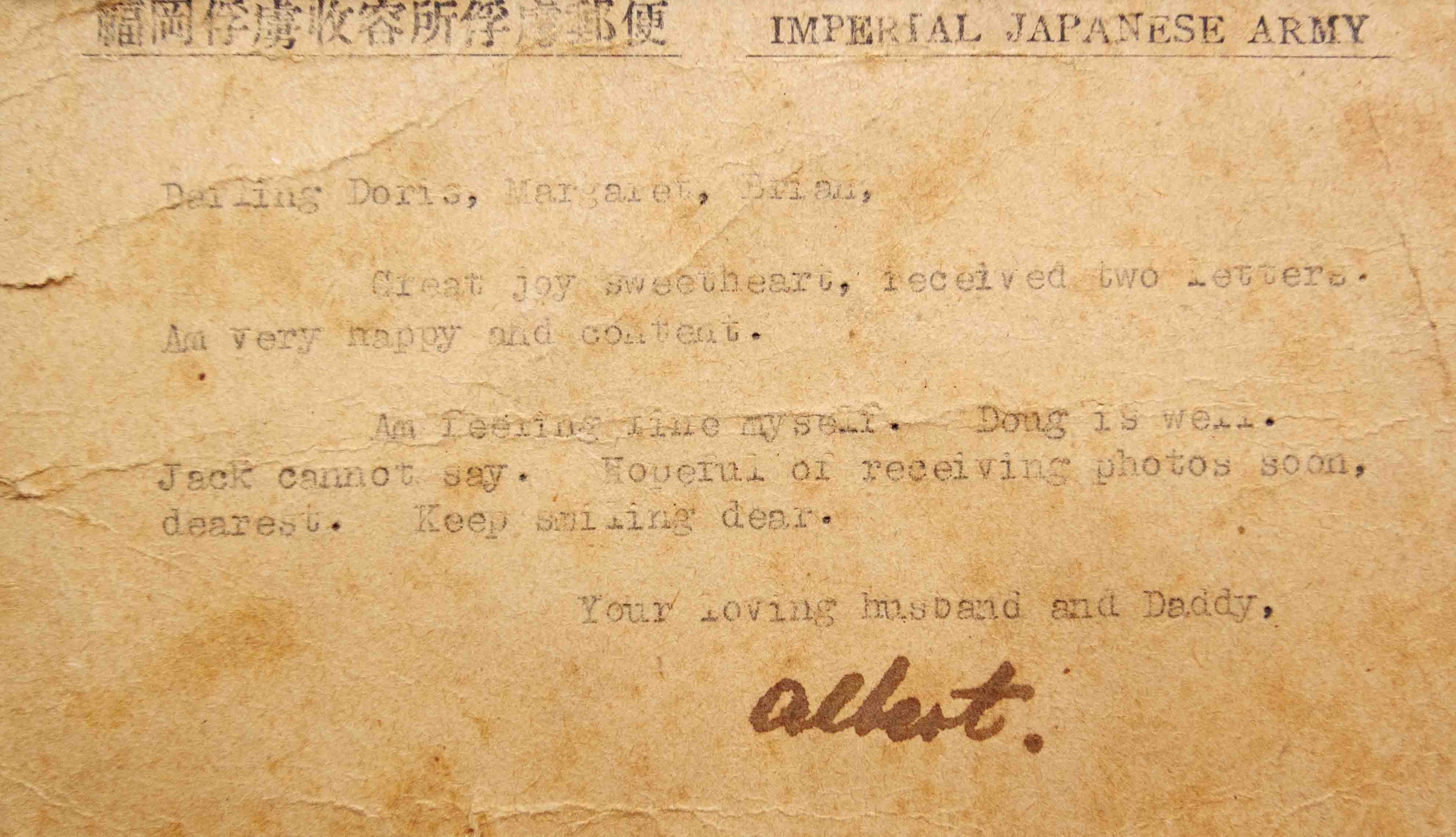
Darling Doris, Margaret, Brian,
Great joy sweetheart, received two letters.
Am very happy and content.
Am feeling fine myself. Doug is well. Jack cannot say. Hopeful of receiving photos soon, dearest. Keep smiling dear.
Your loving husband and Daddy,
Albert
The Royal Hospital collections also include a seal that would have belonged to a Japanese officer in a POW camp. These seals were dipped in ink and stamped as signatures. A stamp such as this can be seen on the back of Albert’s letters to Doris and his children.
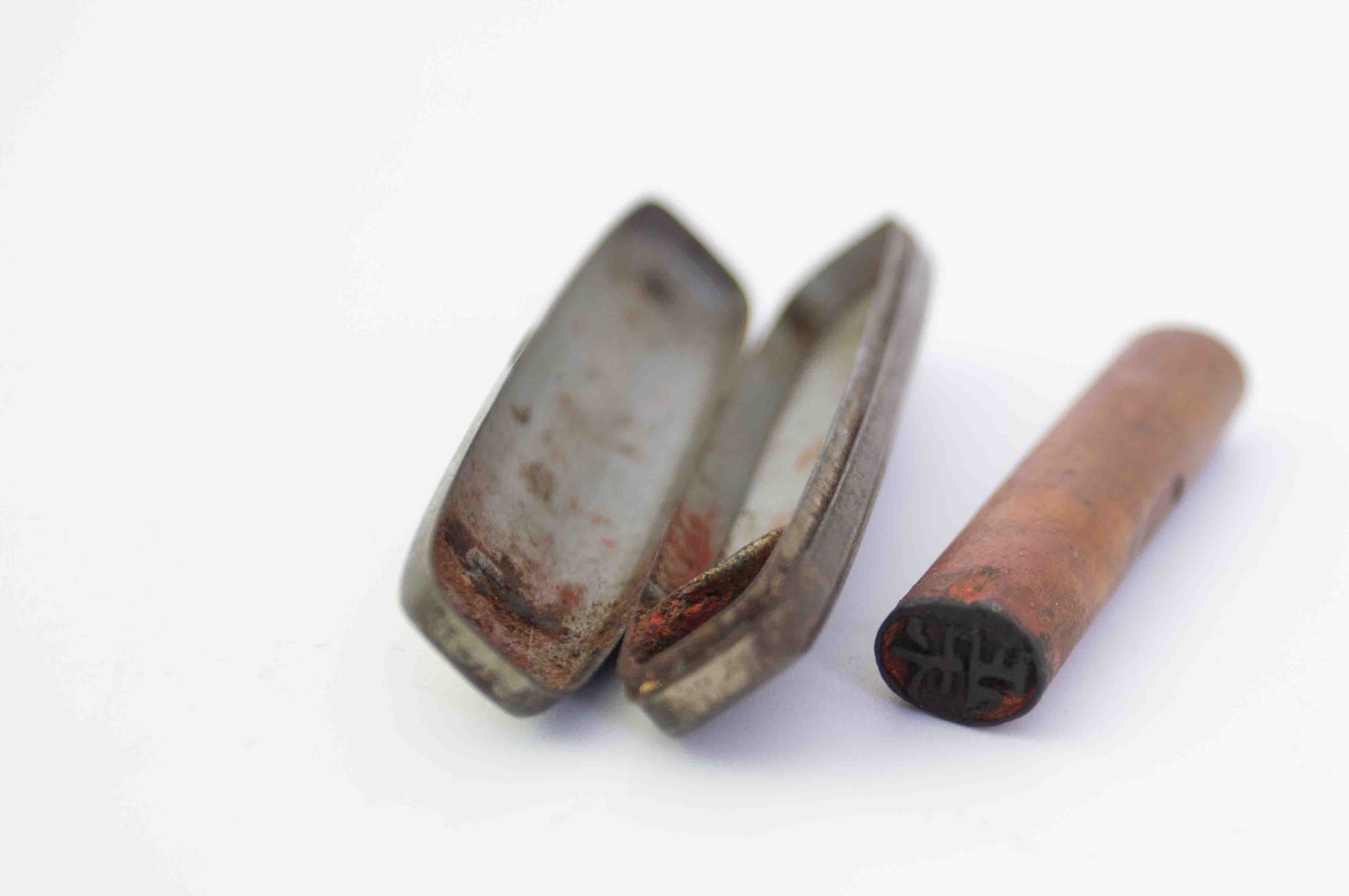
Japanese officer's stamp with red ink
Albert was repatriated to the UK, via Canada, at the end of 1945. POWs were taken home on a deliberately delayed timescale, which allowed them to gain weight in the process so that their malnourished appearances did not cause outrage on their return. Nevertheless, the British public were dismayed to see how soldiers had been treated by their captors.
Once home, Albert returned to his pre-war job as a Conductor with Leicester City Transport. He lived with Doris in the city until her death in 1969. He moved to the Royal Hospital Chelsea in 1979 and was a Chelsea Pensioner for 9 years.
